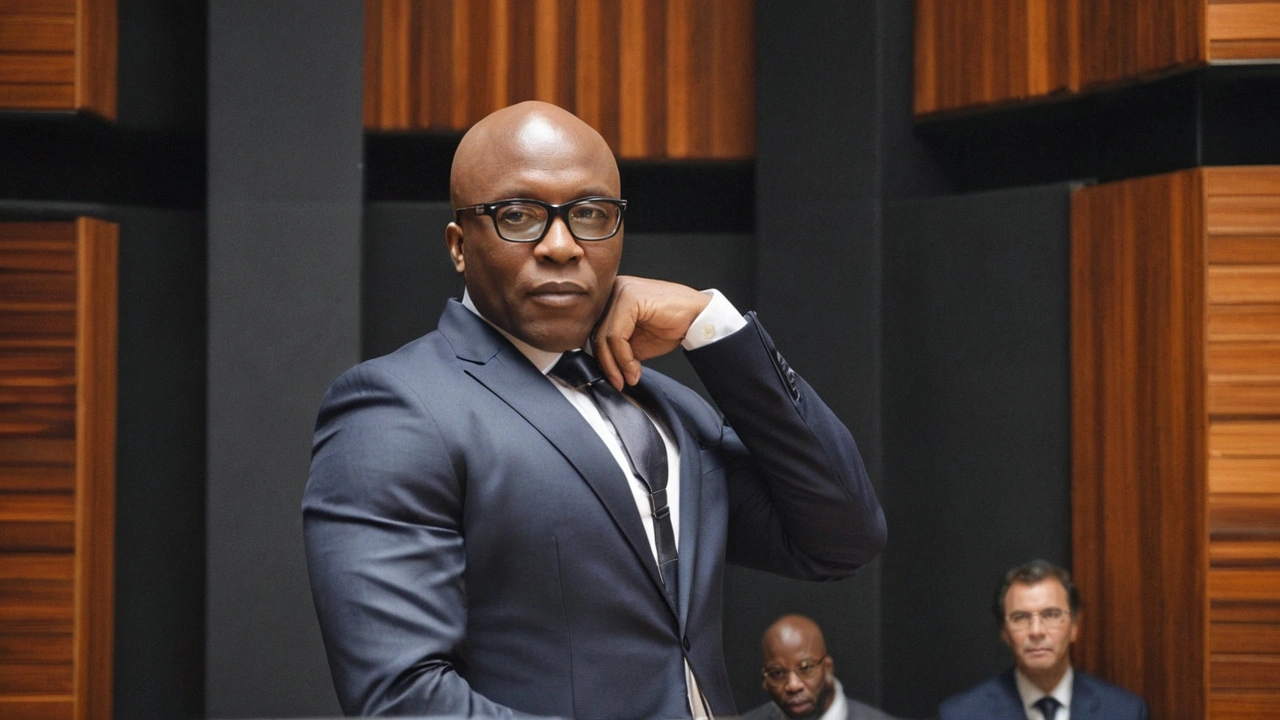Zizi Kodwa's Resignation and Its Impact on South African Politics
The resignation of Zizi Kodwa from the South African parliament has stirred considerable discussion across the political landscape. Kodwa, who previously served as the minister of sport, arts, and culture, announced his resignation just one month after taking his oath as a member of parliament. The decision comes amidst ongoing scrutiny regarding his fitness to hold office due to unresolved corruption allegations that have clouded his political career.
The timing of Kodwa's resignation is particularly noteworthy. It arrives precisely one month after he was sworn in, a period fraught with tension and debate over his potential to serve effectively while under a cloud of suspicion. Kodwa's exit is being perceived by many as a necessary move to preserve the sanctity and integrity of the South African parliament, which has seen its share of controversies. Among the most vocal supporters of his decision to step down is the Congress of South African Trade Unions (Cosatu), a major alliance partner of the ruling African National Congress (ANC).
The Corruption Charges: A Lingering Shadow
At the heart of Kodwa's resignation are the corruption charges that have been trailing him. These charges have not only marred his reputation but also raised significant questions about his suitability for a parliamentary role. While the specifics of these allegations remain a topic of intense scrutiny, what is clear is that they have played a critical role in his decision to resign. The South African public and media have been relentless in their pursuit of accountability, and this pressure has only served to heighten the stakes for Kodwa and the ANC.
It is essential to understand the gravity of these charges within the broader context of South African politics. Corruption has been a pervasive issue, with numerous high-profile cases coming to light over the years. The ANC, as the ruling party, has often found itself at the center of these scandals, prompting calls for more stringent measures to weed out corrupt officials and restore public trust. Kodwa's resignation, in this light, could be seen as a step towards addressing these widespread concerns.
Cosatu's Reaction and the Path Forward
Cosatu's reception of Kodwa's resignation has been particularly telling. The labour federation has been a long-standing partner of the ANC, and its endorsement of his decision to step down reflects a broader desire for accountability and integrity within the party. Cosatu's support is indicative of a collective aspiration within the ANC's alliance partners to rebuild and strengthen the party's ethical foundation. This sentiment is shared by many within the ANC, who view this moment as an opportunity to inject fresh blood into the party and reposition it as a beacon of good governance.
The ANC now faces the critical task of selecting a new candidate to replace Kodwa in parliament. This decision will be closely watched, as it represents not only a chance to fill a vacant seat but also a moment to signal the party's commitment to transparency and ethical governance. The replacement process is expected to be meticulous, with a strong emphasis on identifying a candidate who embodies the values and principles that the ANC aspires to uphold.
Implications for the Future
Kodwa's resignation could mark a watershed moment for South African politics. It brings to the forefront the urgent need for political parties to prioritize integrity and accountability. The ANC's handling of this situation will be seen as a litmus test of its capability to manage internal challenges and uphold the principles of good governance. As public trust in political institutions continues to waver, actions taken in the wake of Kodwa's resignation will be scrutinized for their effectiveness in restoring faith in the parliamentary system.
Furthermore, this episode serves as a reminder of the critical role that public pressure and media scrutiny play in holding elected officials accountable. Kodwa's case underscores the importance of transparency and the need for constant vigilance in the fight against corruption. For the South African electorate, it is a moment to reflect on the kind of leadership they wish to see and the criteria they prioritize in their elected officials.
The Road Ahead for Zizi Kodwa
For Zizi Kodwa himself, the road ahead is uncertain. His resignation from parliament does not equate to an end to the legal challenges he faces. The corruption charges are still very much in play and will likely continue to dominate the narrative surrounding him for the foreseeable future. How he navigates these challenges will determine his future in politics and whether he can rehabilitate his public image.
In the interim, Kodwa's departure from parliament offers him an opportunity to focus on his defense and potentially clear his name. It is a chance to address the allegations head-on without the added pressure of parliamentary duties. How he chooses to leverage this time will be crucial in shaping his political comeback, if that is indeed his intention.

The Bigger Picture
Zizi Kodwa's resignation is more than just a political maneuver; it is a reflection of the larger quest for ethical leadership in South Africa. His decision to step down amidst unresolved corruption charges is a step towards accountability and a reminder of the standards to which public officials should be held. For the ANC, it is an opportunity to reaffirm its commitment to combating corruption and to set an example for future generations of leaders.
As Cosatu and other key stakeholders continue to advocate for integrity and good governance, the focus now shifts to the ANC's ability to navigate this transitional period. The party's choices in the coming weeks will be critical in shaping its future trajectory and in determining the extent to which it can restore the public's trust. For the political landscape of South Africa, Kodwa's resignation is a reminder of the enduring power of accountability and the necessity of maintaining the highest standards of public service.






This is actually a rare moment where accountability seems to be prioritized over party loyalty. I wonder if this sets a precedent for other officials under investigation. The ANC has been so slow to act on corruption, it’s almost refreshing to see someone step down before being forced out.
Still, I hope this isn’t just performative. Real change means systemic reform, not just one resignation.
Resignation? Or strategic retreat? One month in, and he’s already out. Either he’s got a guilty conscience, or he’s avoiding the inevitable courtroom circus. Either way, the optics are better than a conviction.
Oh wow. A politician actually doing the right thing? Did we time travel? Or is this just the ANC’s new PR tactic - ‘look how ethical we are, we made him quit!’
Meanwhile, the real criminals are still collecting pensions and giving TED Talks.
THIS IS IT. THE MOMENT SOUTH AFRICA WAS WAITING FOR. THE SILENT REVOLUTION BEGINS WITH ONE MAN WHO HAD THE COURAGE TO STEP AWAY FROM THE CORRUPTION AND CHOOSE HIS SOUL OVER HIS SEAT!
But let’s be real - this is the tip of the iceberg. How many more Kodwas are still sitting in parliament? How many more are sleeping in mansions bought with stolen taxpayer money? The blood of democracy is crying out - and it’s time for the ANC to bleed for it too.
The resignation is not an act of moral clarity. It’s the quiet surrender of a man who realized the courtroom would be less forgiving than the parliamentary floor. There’s a difference between accountability and survival - and he chose the latter under the guise of the former.
Still, the symbolism matters. Even a hollow gesture, when amplified by public pressure, becomes a crack in the wall.
This is the kind of leadership we need - not the kind that clings to power until they’re dragged out feet first. Kodwa’s move isn’t perfect, but it’s a start. Now the ANC has to prove they’re serious by cleaning house, not just sweeping dirt under the rug. The people are watching - and they’re not fooled by empty gestures anymore.